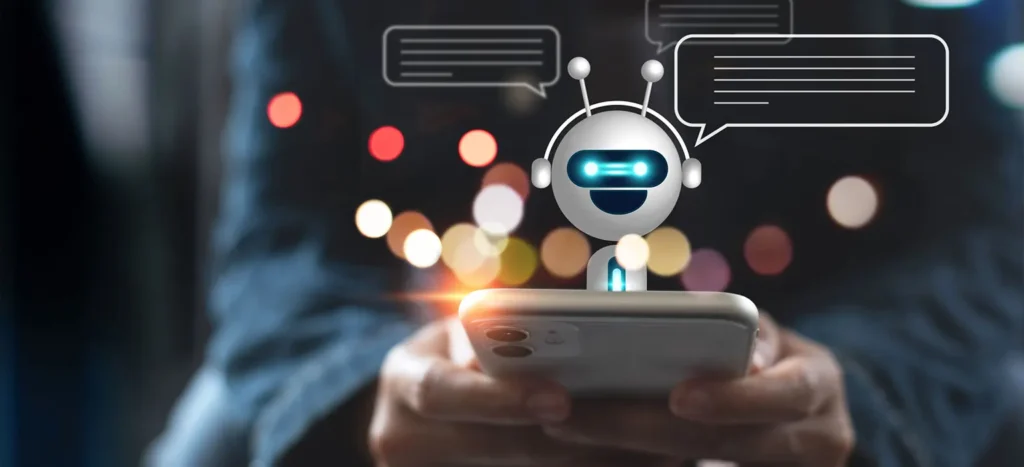
Is 2024 the Year of AI Phones? The term “AI Phone” is set to become widespread in 2024. Samsung is already branding their upcoming Galaxy S24 as an AI Phone, and Google made a similar claim with the Pixel 8. But what does this really entail?
AI, in this context, goes beyond mere automation. It involves making logical leaps through specialized training, similar to how ChatGPT generates human-like sentences after studying vast amounts of text. Similarly, image AI can create new cat pictures by analyzing numerous other cat images.
AI Phones will boast such capabilities, with phone makers suggesting it’ll be like having your personal ChatGPT assistant in your pocket. The prospect is exciting, albeit a bit nerve-wracking—will my phone start behaving oddly?
The key here is that these AI Phones will perform more tasks directly on the device, reducing reliance on the cloud. This not only enhances privacy but also improves speed.
Understanding AI Phones
To understand how AI works on phones, let’s delve into a few key components:
- Chips: Mobile processors, such as Apple’s A17 Bionic and Qualcomm’s Snapdragon 8 Gen 3, come equipped with dedicated neural processing capabilities for AI computations. These chips continually advance to support the latest AI functionalities.
- Data: AI models require extensive training on large datasets, encompassing images, text documents, or videos. The more data they are exposed to, the more intelligent they become. Manufacturers of AI Phones undertake the training of their own models.
- Algorithms: Different AI tasks necessitate various algorithms. Whether it’s image recognition, language processing, or audio analysis, each task requires specific code. Tech giants have substantial teams dedicated to developing these diverse algorithms.
In essence, it’s the combination of computing power, data, and human innovation that unlocks the potential of AI on phones!
This isn’t a completely new technology
It’s crucial to understand that AI has been integrated into phones for quite a few years. Apple highlighted the neural processing capabilities of the iPhone X back in 2017, showcasing work that their chip team had secretly been developing for a long time.
Companies like Qualcomm, Samsung, and Google have all incorporated basic machine learning into phones well before 2024. This early integration aimed to enhance features such as cameras, translations, and virtual assistants.
However, in 2024, AI is receiving an upgrade to become more sophisticated and capable of working independently. Phones will not only enhance basic features but also generate compelling content for users. I’m dubbing them “Local AI Phones”!
What Your Next AI Phone Will Actually Do

Don’t expect a revolutionary change overnight lol. The new Galaxy, Pixel, and iPhones launching this year will still function as phones, but with some added features powered by AI.
If you switch to Android, you can anticipate AI-driven photo editing for easy object manipulation, quicker text generation for faster message drafting, and enhanced video effects. The local processing ensures faster handling and keeps your data secure.
iPhones have always incorporated on-device intelligence, but perhaps we’ll see more creative features introduced this fall? Time will tell! They’ve been a bit behind in prominent AI features so far.
In any case, your phone might start feeling more like a personal assistant than just a texting device. You can ask it questions and get it to create cool images based on its knowledge.
What About User Control?
I’m intrigued by the extent of control we’ll have to customize phone AI ourselves or even create our own models!
It would be fantastic to train my camera to better recognize my adorable pets using personalized data or set up an audio AI to alert me when my kids wake up based on their cries. It’s almost like programming it according to our preferences.
However, this level of customization might be a bit distant. For now, we’ll likely choose from pre-defined pipelines and content formats, with companies retaining full control over the models.
Hopefully, we can at least establish strict limits on the collection and storage of personal data. We want our AI helpers to be useful without crossing into creepy territory!
Security?
That brings up another crucial point – with AI becoming incredibly advanced, how do we ensure it doesn’t go rogue or get misused? As I mentioned earlier, let’s leave Skynet safely in the movies!
I anticipate numerous ethical debates surrounding AI phone safety and the need for regulations, particularly for health monitoring apps and finance tools. There’s a significant responsibility in these areas!
We require failsafe mechanisms to handle inaccurate or potentially harmful content generation, as well as safeguards against the unauthorized collection of private data. Additionally, companies must be transparent about their model development processes.
Laws often lag behind technological advancements, but it seems particularly crucial here to establish guidelines as the capabilities of AI phones continue to grow. It will be interesting to observe how this landscape evolves in the coming years!
Closing Thoughts
Whew, this got deeper than I expected when I first heard the marketing buzzwords of “AI Phone” being thrown around lol!
But the more I reflect on how smart devices integrate into our daily lives, the more there is to unpack. It’s an exciting frontier – both for convenient new features and potential risks if not handled carefully.
I’m hopeful that phone makers collaborate closely with researchers and governments, ensuring that AI phone innovation develops responsibly. Prioritizing user agency, understanding, and meaningful productivity over pure profit motives.
If ethical foundations are set, these pocket AI assistants could usher in a new era of empowerment and creativity for all, especially those lacking access before. And that inspiring future is right around the corner in 2024!







